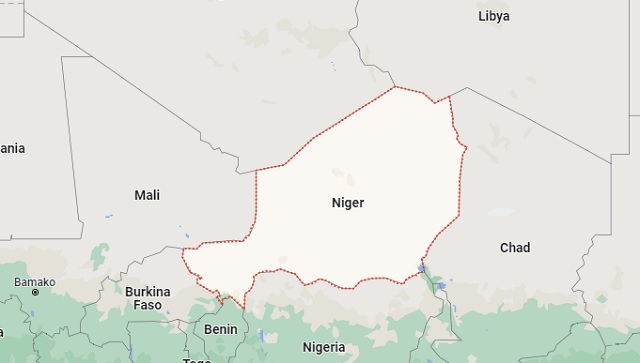
The most likely costs and consequences of attempts by the international community to impose a political solution on any country
THE LAST WORD | Andrew M. Mwenda | Africa seems to be going back to the 1960s, 70s and 80s when military coups and civil wars were a regular occurrence in many countries on the continent. Since 2013, we have experienced eleven successful military coups: in Egypt, Sudan, Chad, Mali, Burkina Faso (two in 2022 alone), Mauritania, CAR, Zimbabwe, Guinea and most recently in Niger. There has also been a non-military self-coup in Tunisia. Over the same period, Africa has experienced 29 attempted coups. We have also witnessed the breakout or continuation of civil wars in Libya, DRC, Mozambique, Libya, CAR, South Sudan, Sudan, Ethiopia, Mali, Cameroun and since 2019, the resurgence of Al Shabab in Somalia as a formidable fighting force after having been degraded by the UPDF between 2012 and 2019.
The causes of these coups and civil wars are many and may vary from country to country. However, the one common theme in Africa is that our states are young and fragile. With the exception of Ethiopia, all of them are a colonial creation of just over 100 years ago a hotchpotch of varied communities lumped together for the convenience of the colonialist not of the resident population. They lack all the non-tangible psychological elements that hold nations together: shared delusions, myths, assumptions and aspirations. Listen to the national anthems of Uganda and Buganda and you will be struck by the void in the Ugandan anthem yet feel the soul of Buganda in its anthem; its aspirations and myths and the dreams of its people.
It is a miracle that these colonial concoctions have held. Perhaps it is the incentives created by the post-World War Two international system, and certainly it is the incredible political skill of post-independence African leaders that has allowed many of these fictions of nation-states to persist. In Europe, North America and Oceania, the modern “nation-state” was created through ethnic cleansing after many years of violent conflict. Building a stable political order requires a lot of time, often measured in generations instead of years. The power to coerce is the most critical in this process, but it is only successful when military victory to establish order is followed by the development of normative values and a cognitive apparatus that inculcate a sense of belonging among the subject population.
This brings me to the recent coup in Niger and the response of the regional body, ECOWAS, and other international bodies and countries such as the AU, EU, UN, USA, France etc. All these institutions and countries have called upon the military to immediately return power to the democratically elected president. The assumption is that elections automatically produce a desirable government that must be upheld under all circumstance (of course for the USA, such a government should not threaten her interests). Yet, democratic theory does not hold that government is desirable simply because it has been democratically elected.
The original definition of democracy was best captured by Abraham Lincoln as “a government of the people, by the people and for the people.” Here, democracy was about the source of power (“the will of the people” as articulated by Jean-Jacques Rousseau) and the purpose of that power (to serve the common good). Then in 1940, Joseph Schumpeter published his ground-breaking work, Capitalism, Socialism and Democracy. He rejected the idea of democracy being about the source of power and the purpose of power. Instead, he argued, democracy is about the procedures of winning and retaining power. (Robert Dahl later encapsulated this in two key elements of democracy: participation and contestation).
Thus, if individuals are free to organise in a voluntary fashion, if they have unfettered access to media and can assemble freely, if elections are free and fair, then a government born out of that process would be democratic. With this argument, Schumpeter unleashed the dogs of intellectual war. But by the early 1970s, a consensus had emerged that Schumpeter was right. Dahl, one of the greatest theorists of democracy, has argued that democratically elected leaders may win free and fair elections by whipping up sectarian, religious and racial sentiments. In power, they may be venal, incompetent, corrupt and even violent. That makes such a government undesirable but it does not make it undemocratic.
So, we return to the coup in Niger. We hear a cacophony of international calls on the military to hand power back to the “democratically elected president”. The international community is literally dictating how individual nations should govern themselves. But how can an abstract entity such as “the international community” dictate how a particular country should be governed? How much local knowledge does this abstract entity have to decide for Niger or any country for that matter? Are democratic elections the only (or even best) way to build a nation? Historic evidence suggests that democracy was the end product of nation building and economic transformation, not the cause of either or both.
Of course, we have limited evidence of the true feelings of the people of Niger. But the little we have seen on television and social media is that the population seem to have welcomed the coup. What if the people genuinely feel the democratically elected president and his government were a sham – a coalition of corrupt, incompetent ethnic manipulators out to line their own pockets? I don’t know the truths but I believe the matter of who rules Niger should be left to the people of Niger to sort out. We need to have faith in their ability to shape their destiny. You should remember that foreign interference is often a negative influence on domestic politics. This is largely because it comes armed with an abstract universal theory of what a good government should look like. This makes it blind to local realities.
The army in Niger is made up of citizens of that country. Attempts by outsiders to impose a solution on Niger may be counter-productive. ECOWAS has threatened to send it a military force to reinstall the deposed president. The army may remain united and resist foreign invasion with the support of the people. This may lead to a protracted civil war that could lead to the collapse of the state resulting into chaos as in Libya and Iraq. This is the same problem in Somalia where the international community fails to see that Al Shabab, which it calls a terrorist organisation, is actually the legitimate representative of the genuine aspirations of the people, not the foreign funded government in Mogadishu.
******

amwenda@independent.co.ug
 The Independent Uganda: You get the Truth we Pay the Price
The Independent Uganda: You get the Truth we Pay the Price



Aha.. Mr Anderea Mujuni M9, time has caught up with you over somalia propaganda! You heaped lots of undeserved praises on what UPDF remarkable achievements in somalia where a more superior US Army had failed in 1991. Very interesting M9 wagging his tail, finding himself on the side of the somalis whose country suffers far-reaching impacts of a US proxy war prosecuted by your adoring Tibuhaburwa’s Army!
You see how you have been, over the years, forced to eat the humble pie.
Today you’re the leading crusader against Tibuhaburwa’s puppet behavior by the world’s super powers!
You can be sure if tomorrow Chinese contracted Tibuhaburwa to fight a foreign war on the African continent on their behave, he would not stop to ask ” but why”?
1.Unlike the former British colonies like Kenya,Ghana,Nigeria,Uganda,Zambia where they left behind good Education and Administrative structures ; France did not do a good job during the colonization process;all the French and Belgium colonies in Africa are all failed states for example; Congo,Niger,Mali,Chad perhaps the absence of such crucial structures are partly contributing to coups;Secondly; France is a Christian nation but her colonies in north Africa were infiltrated by the Islam extremist basally France has too many wars to fight in that region.
2.So to Andrew any personal who takes over government whether through coups or by hostage like the Al shababin Somali should be celebrated?At times the people they rule are so vulnerable in that they are helpless and terrified of them.
3.That North Africa corridor of Chad,Mali,Niger is a free zone for raw material exploitation by the West and a training ground for all sorts of bad manners like Islam extremists and coup innovators.
4.Its unfortunate that the 1st world is comfortable with the political and social disorganization in Africa;
5.Those of you who love class know that France has the best designers for perfume,bags,cloths like Christian Dior,Louis Vuitton,Pierre Cardin,Coco Chanel,Givency so we wonder why they are cant make people of Niger enjoy such class?
6.The sooner African leaders realize that no one will do them a favor when it comes to their economy and politics the better;France earns most of her money from the sale of Airbus,Dassault Aviation,Hot air balloons and parachutes while for Niger she is known for innovation of coups.
7.Its good to have sophisticated friends because they more exposed than you are;but for Africa’s case why have we failed to benefit from the first world?do we just have poor strategist?
8.Most of the first world on face vaule seem genuine because they fund social – economic projects so it is a form of barter trade for our minerals in that any one who doesn’t not agree with them is toppled?Or Africans just have wild imaginations about the first world?
9. I am personally enjoying the way Muhoozi is testing the political climate in Uganda.Ugandans feel that they should thank M7 by electing Muhoozi in case he decides to vie for Presidency .To me this is a natural and right feeling; besides that; Muhoozi bonds with people of all walks of life,he is well educated,he is a Prince, he is handsome and looks like an American movie star.